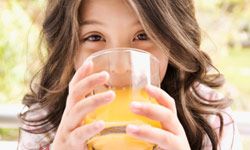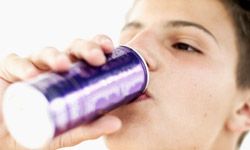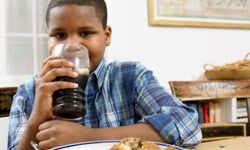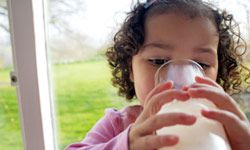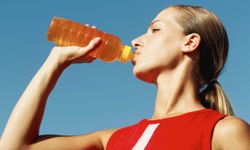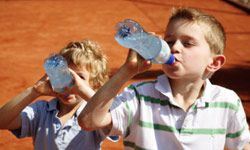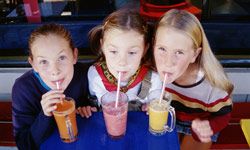Many kids have a drinking problem that could be harming their health: sodas, energy drinks, lattes and even chocolate milk. From innocuous-seeming bottles of flavored water to sports drinks that seem to populate every Little League dugout, we uncover the truth about what your kids (and ours) are drinking. The truth is that the silent calories and surprising ingredients in these and other beverages are often the equivalent of liquid dessert -- or worse. In fact, most Americans get 450 calories a day and an extra 23 pounds (10 kilograms) a year from what they drink, a University of North Carolina study reported.
So, when it comes to what your kids are drinking, what are the 10 worst offenders? Some of the answers may surprise you.
Advertisement
